Seminários
HOJE
Neural Conjugate Flows: Physics-Informed Architectures with Differentiable Flow Structure
Resumo: We present Neural Conjugate Flows, a novel design for physics-informed neural networks with flow structure. We prove that this architecture is an universal approximator for solutions of differential equations and demonstrate how its group and topological lead to computational and theoretical gains when simulating dynamical systems with neural networks.
PRÓXIMOS
Seminario de alunos (Riemann-Hilbert correspondence)
Resumo: Durante esse semestre teremos um seminário de alunos tentando cobrir a correspondência de Riemann-Hilbert. As palestras acontecerão segundas às 15:00 e quintas às 14:30 na sala 232. Nessa quinta 09/05, Igor continuara com o review de D-modulos seguindo o livro de Hotta et. al. "D-modules, perverse sheaves, and representation theory"
Data Science and Innovation
Resumo: Data science and innovation have become overloaded terms, leading to some confusion. To be successful, the innovation process involves not only inventions (e.g., new methods) but also context, e.g., user behavior and timing, e.g., market readiness. In this talk, I discuss the impact of data science on innovation, using selected success stories (some of which I was involved in). I also give hints to promote innovation within companies, in particular, using open innovation. Finally, I describe some innovations in the context of the Inria-Brasil partnership.
Lindeberg-type central limit theorem for dynamical arrays
Resumo: We will discuss Lindeberg-type central limit theorem for dynamical arrays and some applications, including new central limit theorems for functions which are not locally Lipschitz continuous and central limit theorems for statistical functions of time series obtained from Gibbs-Markov systems. Based on joint work with Samuel Senti and Manfred Denker.
Balanced metrics on locally conformally Kahler manifolds
Resumo: A complex Hermitian n-manifold $(M,I, \omega)$ is called balanced if $d(\omega^{n-1})=0$. Balancedness is weaker than Kahlerness; indeed, all Moishezon manifolds are balanced. A complex manifold $M$ is locally conformally Kahler (LCK) if its universal cover $\tilde M$ is equipped with a Kahler form $\tilde \omega$, and the deck transform acts on $(\tilde M, \tilde \omega)$ by homotheties. It was conjectured that a compact complex manifold which admits an LCK and a balanced metric also admit a Kahler metric. I will reduce this conjecture to the stronger conjecture about the shape of the Gauduchon cone, and prove it for all known classes of LCK manifolds. This is a joint work with Liviu Ornea.
A complete solution to Lamé equations with finite monodromy
Resumo: It is a well known result of Beukers and Walll that the classical Lamé equation on a torus w'' = (n(n + 1) P(z) + B)w has finite monodromy only if the parameter n belongs to a finite set of rational numbers mod 1. By combining geometry of spherical tori with combinatorics of dessins d'enfants, we give an exact counting formula for every such n and monodromy group M, and describe the construction of each Lamé equation. This is a joint work with You-Cheng Chou and Po-Sheng Wu. The reference is arXiv:2402.16286. Online talk: meet.google.com/hzq-vads-ntx
Automorphic forms for triangle groups: properties of integrality of coefficients
Resumo: Modular forms have interesting connections with the counting of geometric objects (e.g., the Modularity Theorem), and the integrality properties of coefficients of certain modular forms play a fundamental role in this. An exposition will be given on an article by H. Movasati and Khosro M. Shokri published in 2014, which deals with integrality properties of modular forms for triangular groups. The goal of the presentation is to introduce the audience to related topics, with the article and its results as a backdrop.
Category Theory applied to Data Visualization
Resumo: Category Theory (CT) is a branch of mathematics that studies general abstract structures through their relationships, and it is unmatched in its ability to organize and relate abstractions. In recent years, CT has found applications in a wide range of disciplines, such as chemistry, biology, natural language processing, and database theory. We present a novel application by formalizing Data Visualization within Category Theory. This formalization creates a bridge between Mathematics and Data Visualizations. Moreover, it provides a framework to express complex visualizations, which can be implemented computationally by leveraging the well-established connection between CT and Functional Programming.


